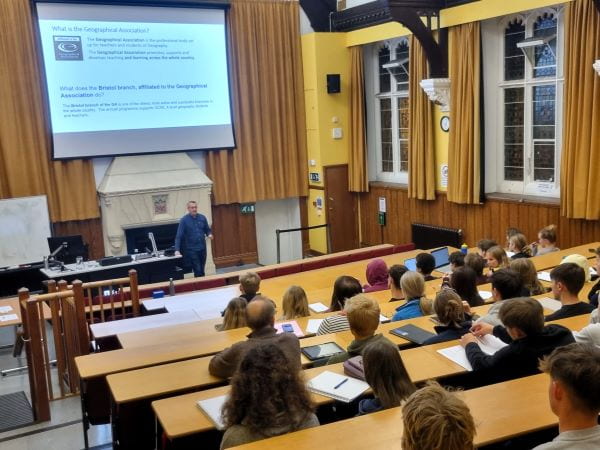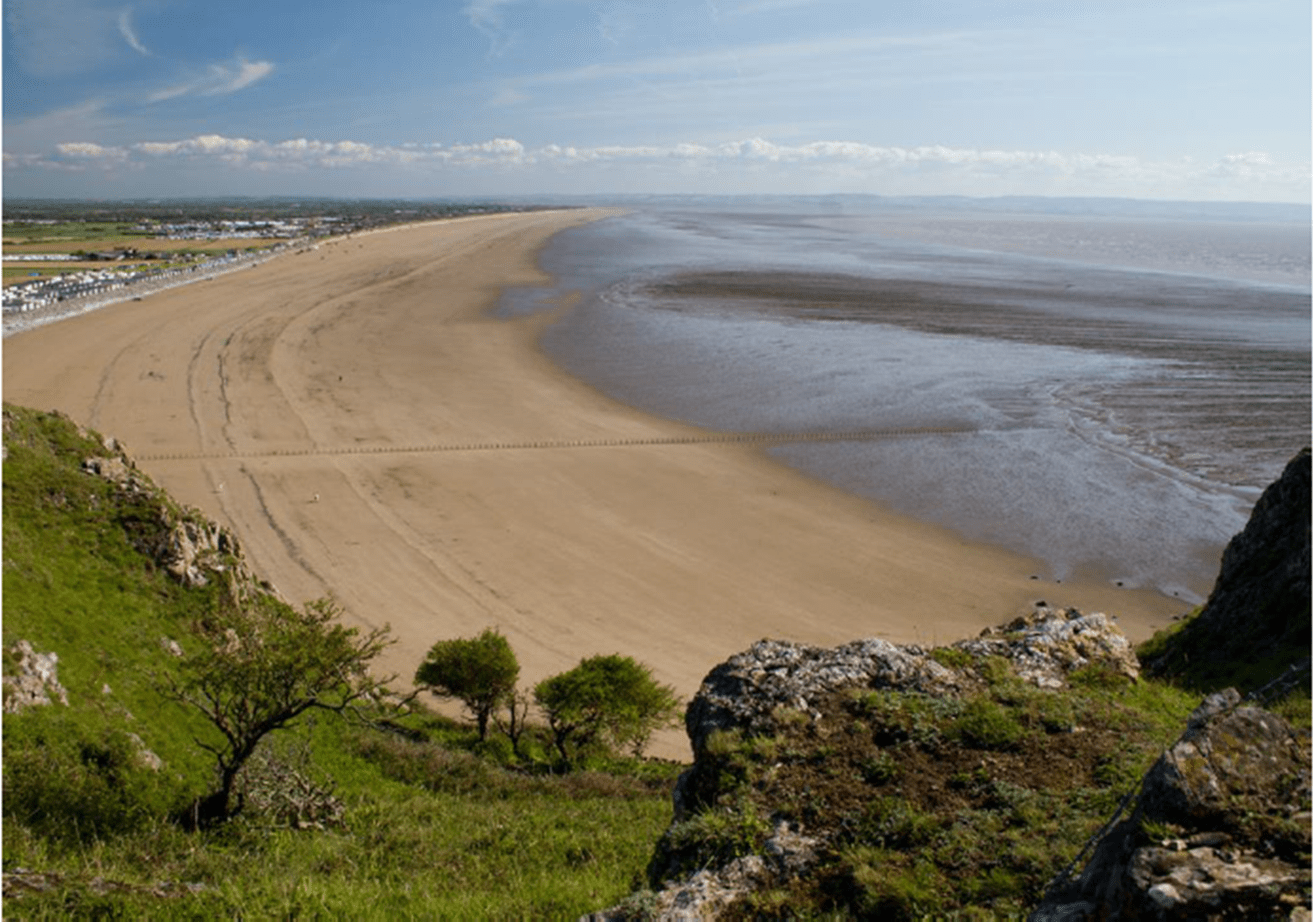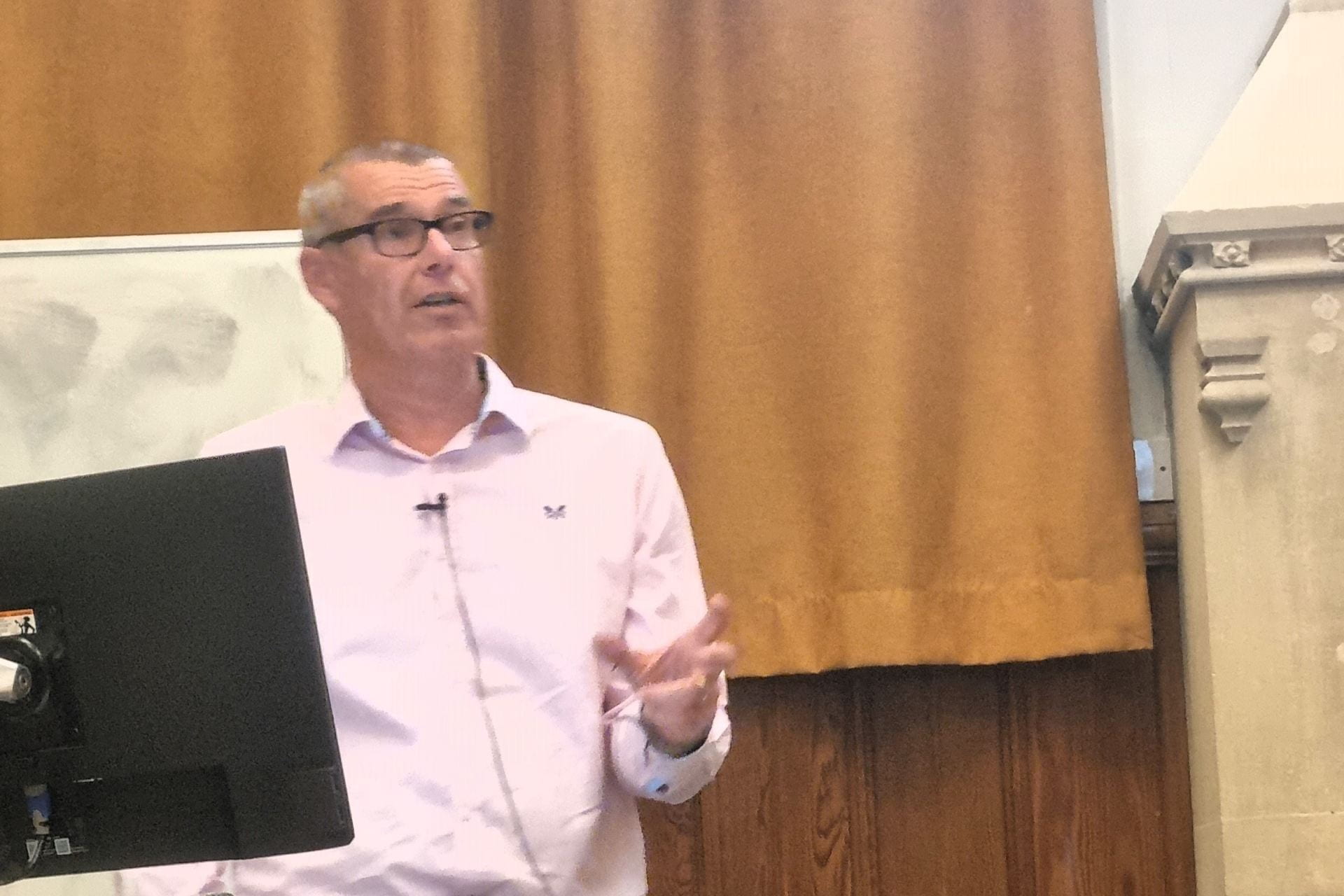Sophie Davies, Y12, Wyedean, reports on the GA coastal flooding talk
We were extremely pleased to see a good crowd at the second of our Autumn talks for local geographers. We encourage reports from the audience. Reflections are provided by Sophie Davies, Y12, who is studying Geography A-level at Wyedean School and Sixth-Form Centre, Chepstow. Our sincere thanks to her for volunteering to write this up. The slides from the talk are available in Resources

Lecture report: On Tuesday 17th October, I attended a Geographical Association talk at the School of Geographical Sciences, University of Bristol, by Dr Chris Spencer – a guest speaker from UWE Bristol. We took the minibus from school in Chepstow and got there in good time to get a good seat in the lecture hall. The talk explored Somerset as a significant flood risk and, in response to that, what effective management solutions can be put in place to combat this ongoing problem.
We began by exploring the definition of a coast, where the land meets the sea, but equally Dr Spencer encouraged us to not think of the coast as a solid line, but rather how the coast is to be thought of as more of a zone. He then went on to highlight the key characteristics of the area that are vital in understanding why much of Somerset is at risk of serious flooding..
One important characteristic is that Somerset is mainly low lying inland, which has importance because it makes it vulnerable to both tidal and fluvial flooding. He then linked the extensive history of flooding to Somerset being a flood risk. He briefly touched upon the major flood on the 30th January 1607, which resulted in 2000 people being drowned. It was incredible to hear the significant impacts of this and how much of the land was inundated with floodwater. He then compared this to the flood of 1981 on December 13th, which resulted again in lots of damage – 11km of coastal defence damage, 50 km2 of agricultural land inundated and the impacts on profit and food production, damages that totaled totaled a staggering £25 million. Whilst commenting on the frequency of these floods, Dr Spencer warned of the concern of climate change and how this could potentially have a massive impact upon the frequency of these floods in the future, especially as glacier and ice sheet melt contribute more to sea level rise. This could generate a risk of more floods every 30, 20 and even 10 years. This is really alarming, especially due to the problematic nature of the region as Somerset has are a large land area that is just at or below sea level.
Dr Spencer next introduced coastal zone management (CZM) and solutions that can be proposed to effectively and efficiently combat these flood risks. We were encouraged to question important factors such as longevity, costs and suitability associated with these solutions. Was it all down to cost-benefit analysis? The conditions of the locality were also important. For example, groynes would be ineffective along this Somerset coast, as longshore drift does not take place, therefore rendering this solution useless in combating flood risks. However, such solutions such as dune management and beach nourishment appeal more, primarily because it is cheaper and more sustainable, but also as one of the key characteristics of Somerset coast is that it is heavily starved of sand.

Overall, as a new Geography A-Level student, I found this talk incredibly useful and interesting because it has enabled a greater understanding of coastal management, which will further aid my studies when I come to study this topic in more depth in January. Furthermore, this case study has demonstrated the importance of understanding the physical geography and human pressures that are placed on it and how it has influenced how we can effectively manage this coastline in the future. I am incredibility grateful for the GA putting on this talk for A-Level students and look forward to attending more in the future.

